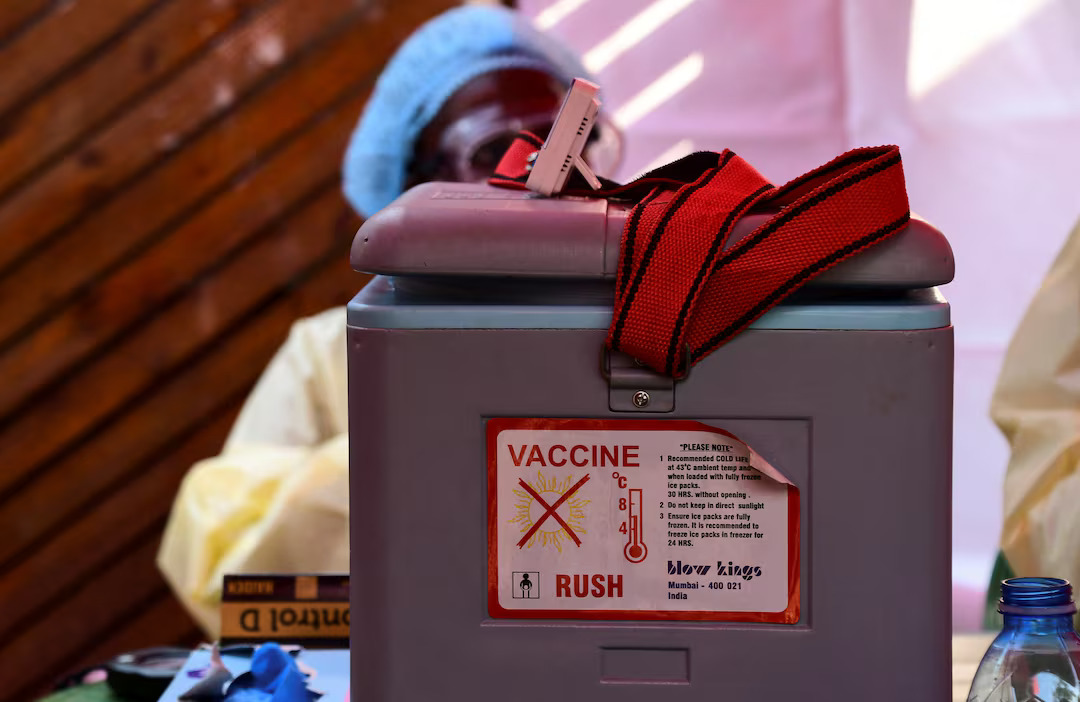Uganda’s Ministry of Health, in collaboration with the World Health Organization (WHO) and global partners, has initiated the first-ever clinical trial for a vaccine targeting the Sudan strain of the Ebola virus. The trial marks a significant milestone in emergency vaccine development.
The study focuses on health workers and individuals exposed to the virus. It began just four days after Uganda reported the death of a nurse in Kampala. The nurse sought medical attention at a hospital near the capital before traveling to Mbale in eastern Uganda, where he was later admitted to a public hospital. Health officials said he had also consulted a traditional healer.
On Monday, two additional cases were confirmed among the nurse’s relatives. The Ministry of Health has identified at least 234 contacts related to this outbreak.
Researchers from Makerere University and the Uganda Virus Research Institute (UVRI) expedited preparations for the trial following the outbreak confirmation on Jan. 30. This is the first trial to assess the clinical effectiveness of a vaccine specifically targeting Ebola caused by the Sudan virus. Rapid progress was made possible through advanced research readiness while adhering to national and international regulatory and ethical standards.
The candidate vaccine was provided by IAVI, with funding from WHO, the Coalition for Epidemic Preparedness Innovations (CEPI), Canada’s International Development Research Centre (IDRC), and the European Commission’s Health Emergency Preparedness and Response Authority (HERA), along with support from the Africa Centres for Disease Control and Prevention (Africa CDC).
“This is a significant step forward in enhancing pandemic preparedness and protecting lives during outbreaks,” said WHO Director-General Dr. Tedros Adhanom Ghebreyesus. “This achievement is a result of Uganda’s health workers’ dedication, community involvement, and the collaborative efforts of the Ministry of Health, Makerere University, UVRI, and WHO’s research network. We appreciate the contributions of our partners, including IAVI for the vaccine donation, CEPI, EU HERA, and Canada’s IDRC for their financial support, and Africa CDC for their assistance.”
During Uganda’s 2022 outbreak of the Sudan strain of Ebola, researchers developed a randomized protocol for evaluating candidate vaccines. Health authorities currently have access to more than 2,000 doses of a candidate vaccine for the Sudan strain, though the manufacturer has not been disclosed.
Uganda has experienced multiple Ebola outbreaks, including a major one in 2000 that resulted in hundreds of deaths. Contact tracing remains critical in controlling the spread of the virus, which presents as a viral hemorrhagic fever.
A trial vaccine called rVSV-ZEBOV was previously used to immunize 3,000 people at risk during an outbreak of the Zaire strain of Ebola in eastern Congo from 2018 to 2020, demonstrating effectiveness in curbing the disease’s spread.
The detection of Ebola in Uganda follows a series of viral hemorrhagic fever outbreaks in East Africa. Last month, Tanzania declared an outbreak of the Ebola-like Marburg disease, and Rwanda announced the conclusion of its own Marburg outbreak in December.

